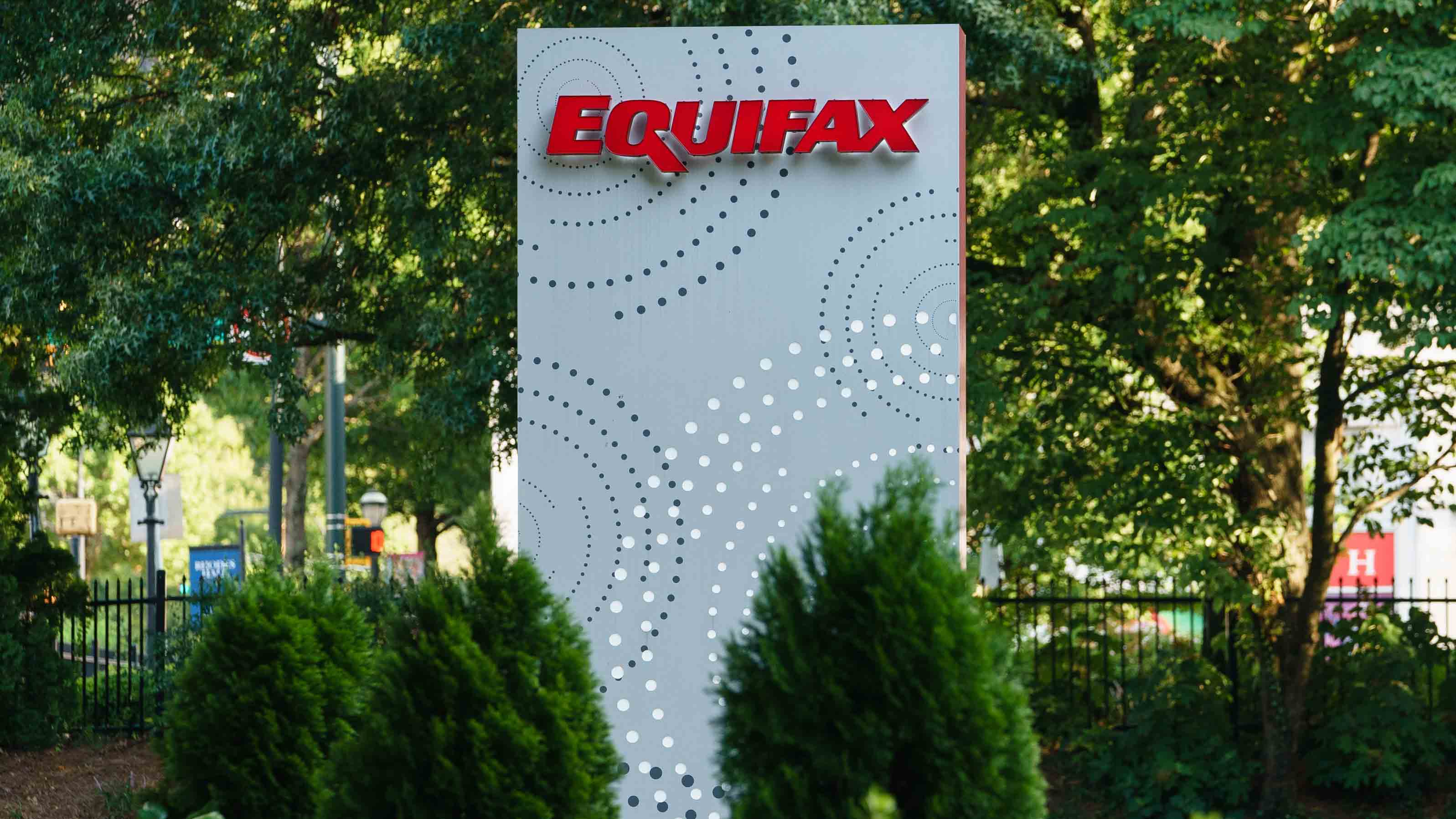Improve Your Credit Score Before Applying for a Loan
To qualify for a lower loan rate, follow this timeline to boost your score.

Profit and prosper with the best of Kiplinger's advice on investing, taxes, retirement, personal finance and much more. Delivered daily. Enter your email in the box and click Sign Me Up.
You are now subscribed
Your newsletter sign-up was successful
Want to add more newsletters?

Delivered daily
Kiplinger Today
Profit and prosper with the best of Kiplinger's advice on investing, taxes, retirement, personal finance and much more delivered daily. Smart money moves start here.

Sent five days a week
Kiplinger A Step Ahead
Get practical help to make better financial decisions in your everyday life, from spending to savings on top deals.

Delivered daily
Kiplinger Closing Bell
Get today's biggest financial and investing headlines delivered to your inbox every day the U.S. stock market is open.

Sent twice a week
Kiplinger Adviser Intel
Financial pros across the country share best practices and fresh tactics to preserve and grow your wealth.

Delivered weekly
Kiplinger Tax Tips
Trim your federal and state tax bills with practical tax-planning and tax-cutting strategies.

Sent twice a week
Kiplinger Retirement Tips
Your twice-a-week guide to planning and enjoying a financially secure and richly rewarding retirement

Sent bimonthly.
Kiplinger Adviser Angle
Insights for advisers, wealth managers and other financial professionals.

Sent twice a week
Kiplinger Investing Weekly
Your twice-a-week roundup of promising stocks, funds, companies and industries you should consider, ones you should avoid, and why.

Sent weekly for six weeks
Kiplinger Invest for Retirement
Your step-by-step six-part series on how to invest for retirement, from devising a successful strategy to exactly which investments to choose.
We’re hoping to buy our first house later this year, and we’re wondering what we should be doing over the next few months to improve our credit before we apply for a mortgage. We have pretty good credit scores, but we would like to try to make them even better.
It’s a great idea to start working on improving your credit score several months before you apply for a big loan, whether you are buying a house, refinancing or buying a car. Boosting your score could help you qualify for a lower loan rate and save you thousands of dollars over the life of the loan. Of course, paying your bills on time has a big impact on your credit score, so be particularly careful not to miss any deadlines before you apply for the mortgage. Here are other strategies (and a timeline for taking them) that aren’t as obvious but can also make a big difference.
Six Months Before You Apply
Don’t open or even apply for any credit cards. Lenders look at “credit inquiries,” which show that other lenders have asked for your credit record and indicate that you might be about to take out a lot of new debt, making it tough to pay your bills on time. Inquiries made within the past several months could mean you've taken on new debt that hasn't yet been reported, says Maxine Sweet, of the credit bureau Experian.
From just $107.88 $24.99 for Kiplinger Personal Finance
Become a smarter, better informed investor. Subscribe from just $107.88 $24.99, plus get up to 4 Special Issues

Sign up for Kiplinger’s Free Newsletters
Profit and prosper with the best of expert advice on investing, taxes, retirement, personal finance and more - straight to your e-mail.
Profit and prosper with the best of expert advice - straight to your e-mail.
Don’t close any credit cards. Almost 30% of your FICO score, the one most lenders rely on, is based on the amounts you owe, including how much of your available credit you've used (called your "credit utilization ratio"). If you close a card that had a high credit limit but keep your balance the same on your other cards, it will look as if you’re maxing out your available credit, which can hurt your score. If you want to close credit card accounts you don’t use -- to avoid paying an annual fee, for example -- try to do it more than six months before you apply for a major loan. For more information, see Close a Credit-Card Account to Avoid Fees?
Check your credit reports for errors. You can get free copies of your credit reports from each of the three credit bureaus every 12 months at www.annualcreditreport.com. If you’ve already received your free reports for the year, you can order your credit reports directly from the credit bureaus at Experian, TransUnion and Equifax. It’s important to check your report from all three bureaus because mortgage lenders usually pull credit scores based on each of these reports and base your rate on the median score. Errors on just one report can affect your interest rate even if the other two reports are accurate. Although disputes are generally resolved within 30 to 60 days, the process can take longer if, for instance, you have to mail documents back and forth. “It’s always better to have a little extra time in case you run into a particularly difficult scenario,” says John Ulzheimer, president of consumer education at SmartCredit.com.
Two Months Before You Apply
Start paying down your card balances, with the goal of getting to a zero balance. “Paying down your cards is by far the most actionable way to improve your scores quickly,” says Ulzheimer. Starting two months in advance is key, he says, because the low balances don’t always appear on your credit report right away. “It takes about that long for the credit reporting to truly update the accounts to show zero-dollar balances,” he says.
If you have to add new charges, keep them to 10% or less of your available credit, whether or not you pay off your credit card bill in full every month. “A low ratio is worth almost as much as paying your bills on time,” says Ulzheimer. The lower the utilization ratio, the better. “The people who have the highest FICO scores (760+) have average utilization of 7%,” he says.
Once you do start shopping for a mortgage, “rate shop for a given loan within a focused period of time,” says Anthony Sprauve, of FICO. Those credit inquiries can affect your score if it looks to prospective lenders as if you’re about to take on a lot of debt. The FICO score recognizes that you may be shopping around for rates before you take out a mortgage, which could cause several inquiries into your credit report but result in only one loan. As a result, all inquiries for a mortgage made within a limited time period only count as one inquiry. “Thirty days is a safe bet,” says Sprauve.
And don’t stop following these strategies just because you apply for a mortgage -- keep them up until you close on the house. “You’re not out of the woods until you have the keys in your hand,” says Ulzheimer. “Lenders can pull a new set of credit reports and scores as late as the day of closing.”
Profit and prosper with the best of Kiplinger's advice on investing, taxes, retirement, personal finance and much more. Delivered daily. Enter your email in the box and click Sign Me Up.

As the "Ask Kim" columnist for Kiplinger's Personal Finance, Lankford receives hundreds of personal finance questions from readers every month. She is the author of Rescue Your Financial Life (McGraw-Hill, 2003), The Insurance Maze: How You Can Save Money on Insurance -- and Still Get the Coverage You Need (Kaplan, 2006), Kiplinger's Ask Kim for Money Smart Solutions (Kaplan, 2007) and The Kiplinger/BBB Personal Finance Guide for Military Families. She is frequently featured as a financial expert on television and radio, including NBC's Today Show, CNN, CNBC and National Public Radio.
-
 5 Vince Lombardi Quotes Retirees Should Live By
5 Vince Lombardi Quotes Retirees Should Live ByThe iconic football coach's philosophy can help retirees win at the game of life.
-
 The $200,000 Olympic 'Pension' is a Retirement Game-Changer for Team USA
The $200,000 Olympic 'Pension' is a Retirement Game-Changer for Team USAThe donation by financier Ross Stevens is meant to be a "retirement program" for Team USA Olympic and Paralympic athletes.
-
 10 Cheapest Places to Live in Colorado
10 Cheapest Places to Live in ColoradoProperty Tax Looking for a cozy cabin near the slopes? These Colorado counties combine reasonable house prices with the state's lowest property tax bills.
-
 TransUnion Fined $23M For Tenant Screening, Credit Freezes
TransUnion Fined $23M For Tenant Screening, Credit FreezesGovernment charges TransUnion over illegal rental background checks and security freezes on consumer credit reports.
-
 Credit Cards vs Charge Cards: What Are the Differences?
Credit Cards vs Charge Cards: What Are the Differences?All you need to know about credit cards vs charge cards — differences, pros and cons.
-
 How Many Credit Cards Should I Have?
How Many Credit Cards Should I Have?How many credit cards should you have? The answer isn’t as straightforward as you might think — it all depends on your financial situation.
-
 Credit card delinquency expected to increase in 2023
Credit card delinquency expected to increase in 2023Credit card and personal loan delinquency rates are expected to increase this year.
-
 What Is a Good Credit Score?
What Is a Good Credit Score?Having a good credit score can save you hundreds, even thousands of dollars on credit cards, mortgages and other loans.
-
 Best Credit Cards for Bad Credit 2023
Best Credit Cards for Bad Credit 2023If used wisely, these credit cards can help you dig out of bad credit; you may even earn 2% cash back.
-
 How to Freeze Your Credit in Three Steps
How to Freeze Your Credit in Three Stepscredit & debt Freezing your accounts at the three major credit bureaus is the best way to prevent thieves from opening new credit accounts in your name.
-
 Did Equifax Botch Your Credit Score?
Did Equifax Botch Your Credit Score?credit score Equifax is in the news–yet again–this time for sending lenders the wrong credit score. Here’s how to find out if you were affected and what to do next.